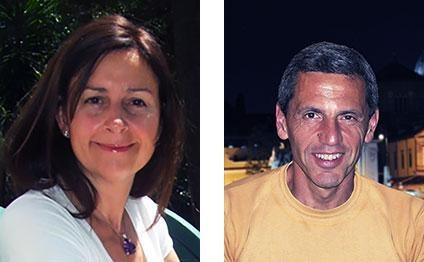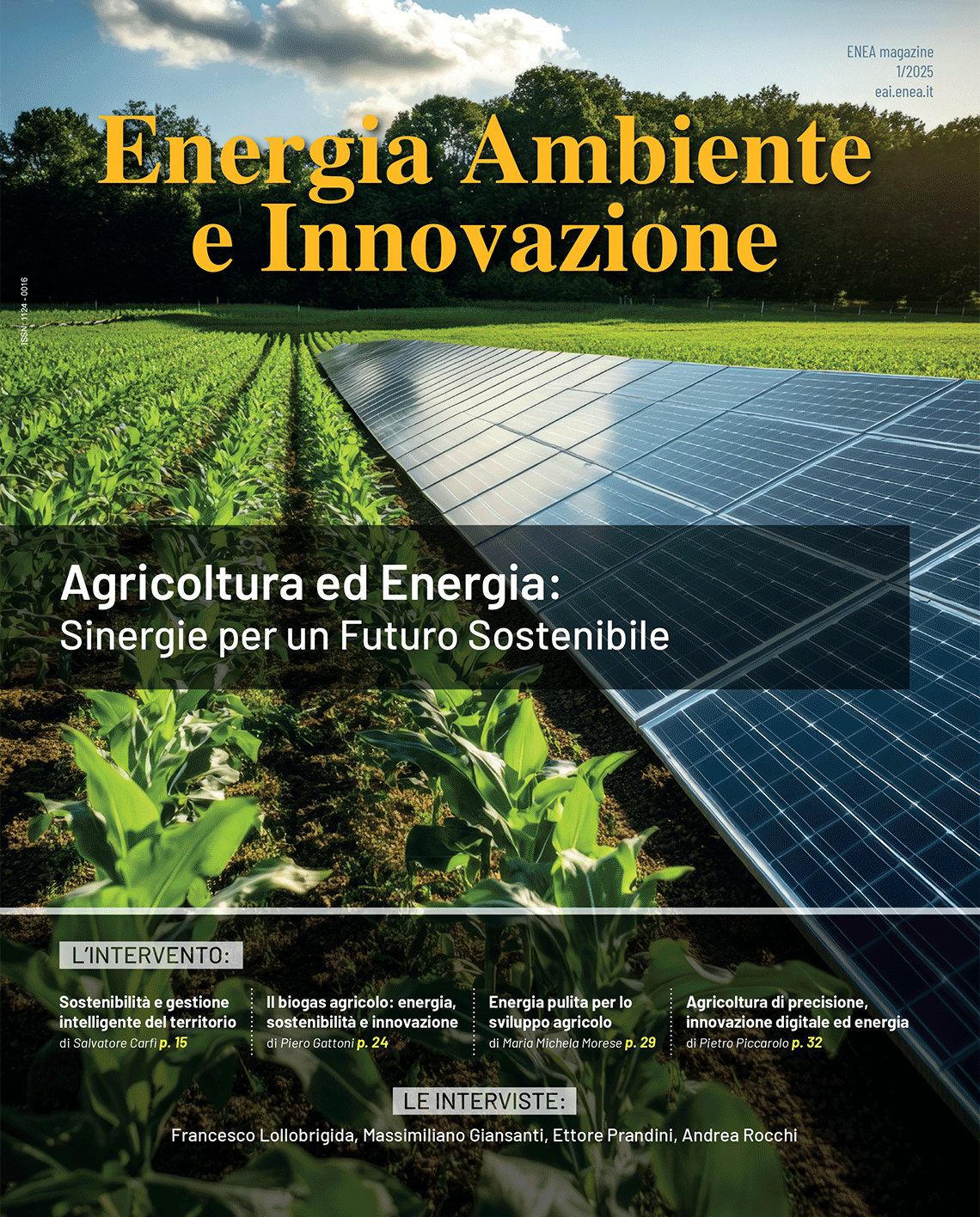
Editorial
by Ilaria Bertini and Michele Marrocco
Future energy is the subheading announcing the main theme of the international Expo 2017 taking place from June 10 till September 10 in Astana (Kazakhstan). Undoubtedly, in a world increasingly greedy for energy the Expo appears to play the crucial role of a melting pot for key ideas about upcoming uses of energy resources. Innumerable specific interpretations of the main theme will be on display in Astana, each with peculiarities and prospects whose full coverage is out of the scope of the present publication. On the other hand, emerging solutions to the problem of energy supplies meet ENEA’s mission in full and, for this reason, this issue of our magazine entitled “Astana Italy” is focused on some Italian technologies and innovative concepts or practices that fall within the hot theme of future energy.
First of all, the Expo makes us raise an immediate question, rather obvious in its disarming simplicity is: what is future energy? In a wider context, this question has a precursor in the crucial doubt on whether the energy, as we know it, has a future at all. As a matter of fact, several urgent constraints, such as the preservation of the natural environment and the pursuit of clever uses of energy resources, have already pushed us to modify our view about energy and, indeed, new forms of energy production and consumption that are user-friendly, or close enough to being credited so, have been explored in recent times. Some examples have become familiar over the years (e.g., biomass, thermodynamic solar power, wind power, photovoltaics, and so on) and they all suggest the tendency for broader understanding about our dependence on energy.
More importantly, one essential requirement for the definition of future energy is the guarantee of future for all users, especially those in the years to come. It means that production and consumption have to be thought and realized in terms of measures inclusive of ecological principles. This objective can be met if and only if a coherent action is undertaken by those that merge innovation and technology into the vision of a long-term (if not perpetual) solution to the energy problem. Thus, the fundamental question on what is future energy can only be answered if we define innovation as related to the broader problem of mind-boggling complexity where scientific and technical solutions fit into reasonable consumers’ needs, inescapable environment protection and forward-looking political choices. These factors of development are intertwined on long time scales but, in this fast-moving world, decision makers have to act on short notice and understand swiftly where the threads go. This implies that fundamental (if not crucial) decisions could be taken on the basis of the so-called “usable ignorance” rather than “usable knowledge” (J. R. Ravetz, “Usable knowledge, usable ignorance: incomplete science with policy implications”, Science Communication 9, 87-116 (1987). Let’s get deeper into the concept.
Innovation recalls at its Latin stem the introduction of new approaches or new practices in scientific and technological procedures as well as in daily life. In other words, innovation pairs with novelty in a very loose and yet ample sense. Yet, is innovation a synonym for advancement or progress? Something new could be for the better or for the worse. There should be no doubts on the two options taking place alternatively or simultaneously, even though on incredibly different time scales. For instance, nothing to question about the novelty introduced by internal combustion engines when they were conceived and put on the market. Great invention! They have sped up the world so that any distance has become shorter if not much shorter. But, after about one hundred years of traffic, waste gases ares diffused in any single corner of our globe and now exhaust emissions bear a serious health risk in many polluted cities so that, on the long run, those uncontrolled emissions could become one of the main triggers of that dramatic scenario framed under and evoked by the well-known term of global warming. This is just a clear example telling us that we cannot take for granted that innovation comes with its all-around progress. Regress could always appear as thorns on roses. Something similar is happening in these days of our western society, where the increasingly open outlook on social life encouraged by the advent of more and more sophisticated and fast means of communication is gradually eaten away by threats coming from several menaces (terrorism, uncontrolled migration fluxes, economic crisis) grown on the ground of the world wide web.
The two sides of the coin are not for the specialist to ponder. Indeed, scientists, practitioners, technicians, professionals act on a different basis. They are, in most cases, highly skilled people and deliver their exclusive knowledge to the object of their expertise. In other terms, if innovation is promoted by specialized researchers, these ones cannot take the function that is entitled to decision makers. Politics has to establish the role of science in the advancement and preservation of our industrialized civilization, especially when innovation does not come up with its untwisted tangles. It means, furthermore, that politicians must be able to develop an intuitive power to grasp downsides of seemingly advantageous scientific or technical steps forward, which could also be prone to open and popular debate (paradigmatic, here, is the case of landfills and the handling of wastes in incineration plants). Such a capability involves the trait that only men and women of vision have. What is more, it demands the burdensome ability of working on partial ignorance about the foreseeable occurrence of endings that are not always so happy as the promises made by new scientific and technical knowledge. And the balance between the two opposite poles (i.e., useable ignorance and knowledge) is hard to achieve if the road towards it is not seriously walked through by our local and national leaders. For sure, best choices stem from that balance and, in this sense, “ignorance is bliss” (as reads an old English saying). But, to get to that point, representatives of our ruling class have to be trained to challenge with competence the stimulating questions that innovation recurrently carries and for which there might be no clear preference among complex answers all the same predictable or, at least, justifiably presumable.
In the end, it appears that future energy does not only have the connotations of revolutionary or, to a lesser degree, incremental advances that science and technology pursue and pile up on the global scene of our erratic world. Future energy is the resulting all-embracing design about our energy-dependent and energy-oriented destiny shaped by the concerted effort made by all the actors involved in the mission of securing the broadest availability of social advantages of new technologies by minimizing in the extreme the potential risks of adverse circumstances. Along the same lines, future energy is much more than technological choices made by the promotors of technology. It is the playhouse where the plot is going to be written down by the hands of several experts of scientific and human provenance and whose respective contributions will forge and prepare a forthcoming time of sustainable lifestyles.

